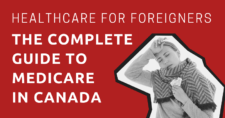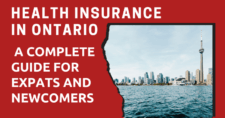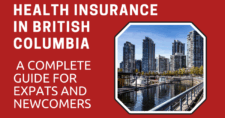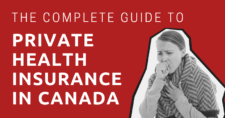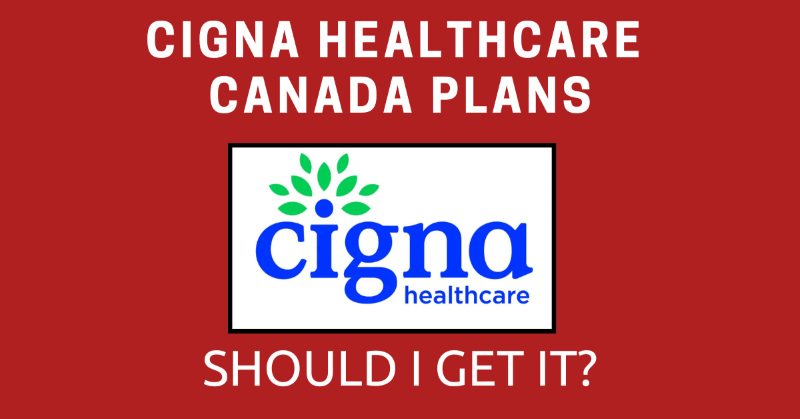
This article will take approximately 21 minutes to read. Don't have the time right now? No worries. Email the ad-free version of the article to yourself and read it later!
Our in-depth review of Cigna Healthcare for expats in Canada. See plan details, pricing, and benefits to decide if it’s worth it for your needs.
Canada is known worldwide for its healthcare system, often referred to as Medicare. While it provides high-quality care, it works a bit differently than many people expect. Each province and territory has its own rules and regulations, which means public insurance coverage varies depending on where you live.
For most people, Medicare is enough for their basic healthcare needs. Many also buy supplementary private insurance to cover services that Medicare doesn’t include, such as dental, vision, or prescription drugs.
However, not everyone qualifies for Medicare right away. For example:
- If you’ve just moved to Canada, many provinces have a waiting period of up to three months before you can enroll.
- In some provinces like Ontario, international students aren’t eligible for public insurance at all.
During this time, you’ll need to pay out of pocket for any medical care, and costs can be shockingly high.
- A basic emergency room visit can cost CAD 1,000 to 2,000, depending on tests and treatments.
- Overnight hospitalization in a private room can easily run CAD 3,000 to 5,000 per day, not including specialist fees or surgery.
Because of these costs, many newcomers and expats consider getting international health insurance, such as Cigna Healthcare. Even a short hospital stay can exceed the price of an annual insurance premium, making it a smart safety net.
In this article, I’ll take a detailed look at Cigna Healthcare’s plans for expats in Canada, who they are, what they cover, how much they cost, and whether they’re worth it. By the end, you’ll have the information you need to decide if Cigna Healthcare is the right fit for you.
Disclaimer: This article may include links to products or services offered by ExpatDen's partners, which give us commissions when you click on them. Although this may influence how they appear in the text, we only recommend solutions that we would use in your situation. Read more in our Advertising Disclosure.
Contents
- Key Takeaways
- Why Expats Choose International Health Insurance in Canada
- What is Cigna Healthcare
- Cigna Healthcare Plan Options for Canada
- Which Plan Should I Get?
- Area of Coverage
- Optional Add-Ons
- Which Add-Ons Should You Get?
- Additional Benefits of Cigna Healthcare
- Exclusions
- Pre-Existing Conditions
- Hospitals and Clinics You Can Access
- Claims Process
- Cost of Cigna Healthcare in Canada
- How to Reduce Your Premium
- Cigna Healthcare Disadvantages
- Is Cigna Healthcare Right for You?
- Disclaimer
Key Takeaways
- While Canada’s healthcare system is excellent, it’s not available to everyone. It also usually takes some time before you can get Medicare.
- It’s recommended to get health insurance in Canada, as healthcare can be expensive if you don’t have any type of coverage.
- Cigna Healthcare provides comprehensive international coverage, including direct billing with hospitals and clinics across Canada.
- Plans are portable, so you can keep your coverage if you move to another country without reapplying or losing benefits.
- The Silver plan is sufficient for most expats, the Gold plan adds maternity care and higher limits, while the Platinum plan offers unlimited coverage and premium services.
- Adding Outpatient Care is highly recommended if you are not yet covered by Medicare since doctor visits and diagnostics in Canada can be expensive.
- Cigna Healthcare accepts applicants with pre-existing conditions, though related treatments are typically excluded.
- Price is around US$227.10 (CAD 308) per month for a 40-year-old person with a US$1,000,000 annual limit, worldwide coverage excluding the US, and no deductible.
- The most accurate way to find your cost is to get a free quote directly from Cigna Healthcare and discuss your needs with their representative before making a decision.
Why Expats Choose International Health Insurance in Canada
Before I break down Cigna Healthcare in detail, here’s a quick overview of why many expats in Canada consider getting international health insurance:
- Coverage during the waiting period: Many provinces require a three-month waiting period before new residents qualify for public health insurance. Without coverage, even basic hospital visits can be costly. International insurance helps bridge this gap and protects you from paying thousands of dollars out of pocket.
- Receive treatment right away: Canada’s public healthcare system focuses on emergency care. If your condition is not deemed an emergency, you could wait months or even years for treatment. With international insurance like Cigna Healthcare, you have the option to access private healthcare for faster treatment.
- International coverage: Medicare only covers you while you are in Canada. International insurance like Cigna Healthcare covers you almost anywhere in the world except countries like North Korea, Ukraine, Russia, Iraq, or Cuba. You can read Cigna Healthcare’s fine print to find a list of countries they don’t cover. The good thing is those are countries you wouldn’t go to unless for very specific reasons. This means it’s possible to keep the same plan after moving abroad. However, talk with Cigna Healthcare in detail since this also depends on your area of coverage.
What is Cigna Healthcare
If you are from the US, you are probably already familiar with Cigna. They are one of the largest health insurance companies in the world and have a strong reputation for their international plans designed specifically for expats.

Cigna’s plans are known for being comprehensive and flexible, offering a wide range of coverage options and excellent customer support. However, they can also be slightly more expensive compared to some other providers with similar coverage levels.
I’ll go into more detail later in this article about their plan options, costs, and whether they’re worth the higher price.
Cigna Healthcare Plan Options for Canada
Cigna Healthcare offers three main plan tiers for expats living in Canada. Each plan comes with a different annual coverage limit and benefits, allowing you to choose the level of protection that best matches your needs and budget.
Below is a comparison of the three plans, with estimated monthly costs for two common scenarios: worldwide coverage excluding the US, with and without a deductible.
| Plan | Annual Limit | Coverage Area | Monthly Cost (No Deductible) | Monthly Cost (US$750 Deductible) |
| Silver | US$1,000,000 (CAD 1,350,000) | Worldwide (option to include or exclude US) | US$227.10 | US$193.80 |
| Gold | US$2,000,000 (CAD 2,700,000) | Worldwide (option to include or exclude US) | US$307.74 | US$262.62 |
| Platinum | Unlimited coverage | Worldwide (option to include or exclude US) | US$406.90 | US$347.23 |
Note: These prices are based on a 40-year-old expat living in Canada, worldwide coverage excluding the US. Your actual premium may vary depending on factors such as age, nationality, health history, and the add-ons you select. The most accurate way to determine your cost is to request a quote directly from the Cigna Healthcare website.
Silver
The Silver plan is the entry-level option from Cigna Healthcare. Even though it’s the most basic plan, the coverage is sufficient for most expats in Canada. It comes with a strong annual limit that covers hospitalization costs, full cancer treatment, and even a private hospital room, which adds comfort during inpatient stays.
Key highlights:
- US$1,000,000 annual limit, enough to cover even the highest medical expenses in Canada
- Coverage for a private hospital room for more comfort during treatment
- Full cancer treatment coverage up to the annual limit
- Emergency care when traveling outside of Canada
- Coverage for transplants and rehabilitation services such as physiotherapy
For the majority of expats, the Silver plan is sufficient unless you have very specific needs such as maternity care or require significantly higher coverage limits.
Gold Plan
The Gold plan is a step up from Silver, doubling the annual coverage limit and adding maternity and newborn care.
Key highlights:
- US$2,000,000 annual limit
- All Silver plan benefits, with higher limits for certain services
- Inpatient maternity care, including delivery and complications
- Newborn care coverage immediately after birth
This plan is good if you are planning to have a baby in Canada. Also, the higher limits mean that health insurance can still cover complex treatments that could involve weeks or months of hospitalization.
Platinum Plan
The Platinum plan is Cigna Healthcare’s top-tier option, providing unlimited annual coverage and the most comprehensive benefits available.
Key highlights:
- Unlimited coverage, so you never have to worry about hitting a limit
- Includes all Gold plan benefits
- Expanded mental health and behavioral health care services
- Designed for high-net-worth individuals or frequent travelers who want maximum flexibility and protection
It’s the most expensive plan, with a cost almost twice as high as the Silver plan. I don’t think anyone needs it unless you travel regularly and need unlimited coverage no matter where you are in the world.
Which Plan Should I Get?
It’s all depending on your need.
In my opinion, the Silver Plan is the best choice for most expats in Canada. While it’s the cheapest plan, it offers high annual limit, full cancer treatment coverage, and even a private hospital room. If you don’t need maternity care or extra mental health services, this plan is usually more than enough.
On other other hand, you should get the Gold plan if you are planning to have a baby and need higher limits. The Platinum plan is only if you want maximum coverage with no limits.
Anyway, to help you choose the right plan, you can a free quote directly from Cigna Healthcare. Their team can help you compare plans and answer any questions you have before you decide.
Area of Coverage
When selecting a Cigna Healthcare plan, you’ll need to decide between two coverage options:
- Worldwide excluding the US
- Worldwide including the US (Higher monthly premium due to the very high cost of medical care in the United States).
While most expats choose to exclude US coverage to save money, there are a few situations where adding it might make sense:
- You are from the US and may need to return for medical treatment or regular care.
- Since Canada is close to the US, you might prefer to cross the border for non-emergency procedures or surgeries to avoid long wait times in Canada’s public system. Or you can visit private healthcare in Canada.
Even if you exclude the US, your plan still includes emergency coverage when you are visiting there. For example, Cigna’s Silver plan automatically comes with US$ 100,000 (CAD 135,000) of emergency treatment coverage for the US.
This means that if you have a sudden illness or serious accident while in the US, you can still receive urgent care without having to pay out of pocket for the entire bill.
Optional Add-Ons
As mentioned earlier, Cigna Healthcare plans are very flexible. The core plans mainly cover hospitalization and inpatient care.
If you want more coverage, you can customize your policy by adding add-ons. These add-ons include outpatient visits, medical evacuation, preventive care, and even dental and vision services.
Below, I’ll explain each add-on based on the Silver plan, which is the most commonly chosen plan by expats in Canada, and share my opinion on whether it’s worth getting.
Outpatient Care
This module covers medical services that don’t require you to stay in a hospital, such as doctor visits, specialist consultations, diagnostic tests, and prescribed medications.
Silver Plan Outpatient Coverage:
| Service | Limit (US$) | Limit (CAD) |
| Annual maximum | 15,000 | 20,250 |
| Consultations & outpatient procedures | 2,500 | 3,375 |
| Prescribed drugs & dressings | 1,500 | 2,025 |
| Diagnostic tests (X-ray, lab work, etc.) | 2,500 | 3,375 |
| Outpatient rehabilitation (physiotherapy, etc.) | 5,000 | 6,750 |
Should I get it?
If you are not yet covered by Medicare, this add-on is highly recommended. The cost of outpatient care in Canada can be very expensive if you are paying out of pocket.
For example:
- A single GP visit can cost CAD 100–150
- A specialist consultation can range from CAD 200–500, depending on the complexity of care
- Common diagnostic tests like MRIs can cost CAD 800–1,200
If you don’t have Medicare coverage yet, a few visits to the doctor or tests could easily add up to thousands of dollars, which makes this add-on well worth the cost.
Medical Evacuation and Repatriation
This add-on covers emergency transportation to another hospital or country if you need specialized care that isn’t available locally. It also includes repatriation to your home country and travel assistance for accompanying family members.
Silver Plan Coverage:
- Medical evacuation and repatriation paid in full
- Compassionate visit allowance: US$ 1,200 (CAD 1,620) per trip, up to 5 trips
- Living allowance during evacuation: US$ 155 (CAD 210) per day, up to 10 days per trip
Should I get it?
For most expats living in Canadian cities, this add-on isn’t essential. Canada has excellent medical facilities throughout the country, so you’ll almost never need to be evacuated elsewhere for treatment.
However, if you frequently travel to remote areas like Yukon, Nunavut, or northern British Columbia, where advanced hospitals are limited, this add-on can be a lifesaver.
It’s also useful if you’re into adventure activities like skiing, snowboarding, or hiking in isolated areas, where serious accidents could require emergency evacuation.
Health and Wellbeing
This add-on focuses on preventive care and mental health support, helping you stay healthy and manage stress.
Silver Plan Coverage:
| Service | Limit (US$) | Limit (CAD) |
| Routine physical exam | 325 | 440 |
| Footcare (up to 5 sessions) | 325 | 440 |
| Cancer screenings (cervical, prostate, breast) | 325 each | 440 each |
| Mental health support | 20 face-to-face sessions per year | 20 sessions per year |
Should I get it?
This add-on is completely optional.
It’s worth considering if you plan to get regular check-ups or need mental health care. Mental health support in Canada can be expensive, with therapy sessions often costing CAD 150–300 per visit. Over time, this coverage can pay for itself.
For routine check-ups, this benefit is nice to have but not critical, especially if you already plan to pay out of pocket.
Vision and Dental
This add-on covers routine dental care and basic vision services, which are not included in Medicare.
Silver Plan Coverage:
| Service | Limit (US$) | Limit (CAD) |
| Eye exam (1 per year) | 100 | 135 |
| Glasses or contact lenses | 155 | 210 |
| Dental care annual max | 1,250 | 1,690 |
| Routine dental | 80% reimbursement | 80% reimbursement |
| Major restorative dental | 70% reimbursement | 70% reimbursement |
| Orthodontics (under 18) | 40% reimbursement | 40% reimbursement |
Should I get it?
While Medicare rarely covers vision or dental care, and many people buy supplementary private insurance for these services, it can still be more affordable to pay out of pocket.
- Eye exam: CAD 100–150
- Dental cleaning: CAD 150–250
Unless you need major dental work or orthodontics, paying out of pocket is usually cheaper than adding this module to your plan.
Which Add-Ons Should You Get?
In my opinion, the Outpatient Care add-on is the one you should definitely include, especially if you are not yet covered by Medicare. The other add-ons completely depend on your personal needs and lifestyle.
- For example, if you regularly travel to rural areas or enjoy activities like skiing or hiking in remote places, it’s a good idea to get the Medical Evacuation and Repatriation add-on.
- If you mostly stay in urban areas, you likely don’t need it.
Add-ons like Health and Wellbeing and Vision and Dental are nice extras but optional. It’s best to consider them only if you know you will use these services frequently.
Additional Benefits of Cigna Healthcare
In addition to the main plan coverage and optional add-ons, Cigna Healthcare includes several extra features at no additional cost. These benefits are part of every plan and help Cigna stand out from many other international health insurance providers.
Telemedicine
Cigna Healthcare offers a telemedicine service, allowing you to speak directly with doctors in their network anytime, from anywhere.
- It’s a quick way to get medical advice without visiting a hospital or clinic (and paying for costly parking).
- Doctors can prescribe medications directly through the service.
- If your condition requires in-person treatment, the doctor can recommend which hospital you should go to.
This feature is especially useful for minor health issues or when you want quick medical guidance.
Case Management
This is one of my favorite features and something you don’t see often with other insurers.
If you are diagnosed with a serious illness, such as cancer or heart disease, Cigna Healthcare will assign you a dedicated case manager.
- Your case manager acts as a single point of contact for everything related to your insurance.
- They help coordinate appointments, recommend doctors and hospitals, and assist with claims paperwork.
This makes the entire treatment process smoother and far less stressful during an already difficult time.
24/7 Multilingual Customer Service
Since Cigna operates worldwide, you can contact their support team anytime, day or night, no matter where you are.
They provide assistance in multiple languages, including English, French, German, Spanish, and many more. This is especially helpful if English is not your first language or when you’re traveling internationally.
Mobile App
Cigna Healthcare also has a mobile app where you can:
- Submit and track claims
- Access your policy details
- View payments and coverage limits
While it’s not essential, it adds a layer of convenience and helps you manage your insurance on the go.
Exclusions
Like other private health insurance plans, Cigna Healthcare does not cover everything. There are certain conditions and situations that are excluded from coverage. These exclusions are very common across most international health insurers, so they shouldn’t come as a surprise.
Some of the most common exclusions include:
- Pre-existing conditions (I’ll explain more about this in the next section)
- Cosmetic or elective surgery
- Experimental or unproven treatments
- Self-inflicted injuries
This isn’t a complete list. If you want to see every exclusion in detail, you can read the full policy directly here.
Pre-Existing Conditions
Pre-existing conditions are one of the biggest exclusions in private health insurance around the world, and Cigna Healthcare is no different. This means that if you already have a medical condition before buying your Cigna Healthcare plan, any treatment related to that condition will not be covered.
However, you can still purchase Cigna Healthcare even if you have pre-existing conditions. The plan will simply exclude those specific conditions from coverage while covering everything else.
That said, Cigna Healthcare does provide some support for managing certain chronic conditions. While they won’t cover treatment for the underlying illness itself, they can still help you maintain and manage these conditions if you are 60 years old and above:
- Hypertension (high blood pressure)
- Type 2 diabetes
- Glaucoma
- Arthritis
- Joint or back pain
- Osteoporosis or osteopenia
Also, I recommend you to always be upfront and honest about your medical history when applying. If you hide information and it’s later discovered, your claims can be denied.
In addition, if you have significant pre-existing conditions, it might be better to rely on Medicare if you are eligible for it. While Medicare often comes with long wait times, it does cover pre-existing conditions, unlike private international insurance.
Hospitals and Clinics You Can Access
With Cigna Healthcare, you can visit virtually any hospital or clinic in Canada, thanks to their wide and well-established network. This includes both public and private hospitals, giving you plenty of options no matter where you live or travel within the country.
One of the biggest advantages of using Cigna is direct billing. In most cases, you won’t need to pay the hospital bill upfront. Instead, Cigna Healthcare will work directly with the hospital to settle the charges on your behalf. This is especially helpful for expensive treatments like surgeries or extended hospital stays, where costs can easily reach tens of thousands of dollars.
Claims Process
For outpatient care such as doctor visits or diagnostic tests, you may need to pay the bill first and then submit a claim for reimbursement.
You can do it by:
- Uploading the necessary documents and receipts through the Cigna Healthcare mobile app.
- Once your claim is reviewed and approved, you can expect reimbursement within five working days after they receive necessary documents.
Cost of Cigna Healthcare in Canada
The cost of a Cigna Healthcare plan depends on several factors, including
- Your age (younger expats pay less, while older expats pay more)
- The plan tier you choose
- Your coverage area
- Whether you add any optional modules like outpatient care or dental
- And much more.
Below are sample monthly premiums for a 40-year-old expat living in Canada, with worldwide coverage excluding the US:
| Plan | No Deductible | US$750 Deductible |
| Silver | US$227.10 (CAD 308) | US$193.80 (CAD 263) |
| Gold | US$307.74 (CAD 417) | US$262.62 (CAD 356) |
| Platinum | US$406.90 (CAD 552) | US$347.23 (CAD 471) |
Please note: These are only estimated prices. Your actual premium may vary depending on your age, health history, coverage area, and selected add-ons. To get your exact price, visit the Cigna Healthcare website and request a free quote.
How to Reduce Your Premium
If you feel your current premium is too high, here are a few ways to bring the cost down:
- Choose a higher deductible or cost-sharing option
This is the most effective way to lower your monthly costs. It works well if you rarely visit the doctor but want protection for big, unexpected expenses. - Exclude US coverage if not needed
Including US coverage greatly increases your premium because of the high cost of medical care there. If you don’t plan to receive treatment in the US, it’s best to exclude it. - Stick with core plans only
Avoid adding extra modules like outpatient care or dental if you don’t need them. These add-ons provide extra convenience but also increase your premium.
Keep in mind that reducing your premium also reduces your overall coverage, so it’s important to strike the right balance. There’s no right or wrong choice here. Just pick the option that best fits your healthcare needs, lifestyle, and budget.
Cigna Healthcare Disadvantages
No health insurance plan is perfect. While Cigna Healthcare offers excellent international coverage and strong benefits, there are a few downsides you should consider before signing up:
- If you are already covered by Medicare and are comfortable using it, you may not need additional insurance at all.
- Pre-existing conditions are not covered, except for certain managed conditions like hypertension or diabetes. Check out the Pre-Existing Conditions section above for more details.
- Maternity coverage is only available on higher-tier plans like Gold or Platinum.
- Outpatient coverage is not included by default and must be purchased as an additional add-on, which increases your premium.
Is Cigna Healthcare Right for You?
On the other hand, Cigna Healthcare can be an excellent option if you:
- Need a reliable health insurance plan while waiting for Medicare eligibility
- Can’t qualify for Medicare in your province
- Want international coverage that goes beyond Canada
- Prefer faster treatment for non-emergency care, without long wait times
- Don’t mind paying a bit more for a high-quality insurance plan
Based on our discussions with the Cigna Healthcare team, the three groups that most commonly purchase Cigna plans are international students, mobile workers, and retirees. Some people buy it because they can’t get Medicare at all, while others simply want more comprehensive protection than what Medicare provides.
If you are interested in exploring Cigna Healthcare further, you can visit their official website to get a free personalized quote. After that, a Cigna representative will contact you to answer your questions and help you decide if the plan is right for you.
Disclaimer
I wrote this article based on my in-depth research and by carefully reviewing Cigna Healthcare’s policy documents. While I’m not an insurance broker, I’m very familiar with international health insurance plans like this after reviewing nearly 100 different policies. That said, mistakes can still happen, and insurance is a complex topic with many details that can’t all be covered in a single article. If you’re interested in purchasing a plan, I strongly recommend reading the policy thoroughly yourself and speaking directly with a Cigna Healthcare representative, ideally getting everything confirmed in writing, before making a final decision.
